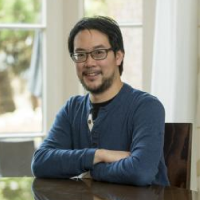Global gathering of research software funders sets the agenda for supporting sustainable research software
Global gathering of research software funders sets the agenda for supporting sustainable research software
Posted on 30 November 2022
Global gathering of research software funders sets the agenda for supporting sustainable research software
 Photo by NASA.
Photo by NASA.By Michelle Barker, Valentina Azzarà, Tom Bakker, Lieke de Boer, Neil Chue Hong, Maria Cruz, Niels Drost, Joris van Eijnatten, Maaike de Jong, Daniel S. Katz, Carlos Martinez-Ortiz, Veronica Pang.
This blog post was first posted by the Research Software Alliance and Netherlands eScience Center.
On 8 and 9 November, the Research Software Alliance (ReSA) and Netherlands eScience Center organised the International Funders Workshop: The Future of Research Software. During this workshop, a number of members from the Research Software Funders Forum came together with other organisations that support research software. During the workshop, participants explored how to effectively fund new and existing research software. In total, more than 60 representatives from 45 organisations attended the workshop.
Imagine a world without research software. It’s a world in which researchers cannot build and operate modern scientific instruments, nor model climate change, ecosystems, human bodies, virus outbreaks, social interactions or inequality. A world in which they would not be able to process research data or automate, share, reproduce and reuse research methods.
The crucial role of software in research and the urgent need to sustain it and to invest in the people who develop and maintain it has led to several funders to come together in the Research Software Funders Forum, a collaboration of funding organisations (supported by the Alfred P. Sloan Foundation) committed to supporting research software and those who develop it as fundamental and vital to research.
Members from the Forum met with other organisations that support research software at the International Funders Workshop, which is summarised in the report, Global gathering of research software funders sets the agenda for supporting sustainable research software. It was an opportunity for participants to explore how they can effectively contribute to making research software sustainable. Participants shared their experiences, which varied not only in the size of the participants' budgets, but also where programmes are situated, whether they specifically focus on research software, and also what they target.
A major part of the workshop focused on drafting the Amsterdam Declaration on Funding Research Software Sustainability. Research software is defined within the Declaration as source code files, algorithms, scripts, computational workflows and executables that were created during the research process or for a research purpose.
During the discussion sessions at the workshop, it became clear that to make software sustainable, there is a need for a wide set of roles and career pathways, including technical specialists, but also community managers and knowledge transfer expertise. Funders should ensure that these and other roles can be included in funding requests.
Additionally, for funders to understand the international landscape, international collaboration is needed. Because while funders typically work in a national or regional scope, research software is global.
Lastly, and importantly, there was a desire to ensure that ethics, environmental sustainability; and that diversity, equity and inclusion are not lost or assumed when thinking about software sustainability.
This workshop marks a further step in the development of the research software community. As Neil Chue Hong, Director of the Software Sustainability Institute, noted:
“Ten years ago, I could never have imagined that a workshop like this would be possible. Open data had just been coined as a term. The visibility of software as part of the research ecosystem in the wider community was minimal, despite many large programmes funding research software in the 1990s and 2000s. But since then, the Carpentries has taught workshops on all seven continents, a new professional society for Research Software Engineers has been born, and research software is everywhere. This has been amazing.”
Videos and slides of all of the keynotes are available: Daniel S. Katz, Chief Scientist at the National Center for Supercomputing Applications (NCSA) and Research Associate Professor in Computer Science at the University of Illinois at Urbana-Champaign, USA, and Carole Goble, a Professor of Computer Science at the University of Manchester, UK, set the scene to enable attendees to form a better common understanding of the place of research software. Joeri van Leeuwen, Senior Astronomer at the Netherlands Institute for Radio Astronomy (ASTRON), Netherlands; and Fabio Kon, Special Advisor, São Paulo Research Foundation (FAPESP), Brazil, shared their researcher and funder perspectives (respectively), thoughts on why and how to care about research software and the people who develop and maintain it, and ideas for how to better recognise their importance.
The ReSA Research Software Community Forum took place on 29 November, 15:00-16:00 UTC, and it featured Joris van Eijnatten from the Netherlands eScience Center, who discussed the workshop outcomes and next steps in this public forum.
Drafting of the Declaration will now continue; if you would like to be kept up to date and potentially be involved in this process then email amsterdamdeclaration@esciencecenter.nl to request to be sent subscription details when available.

